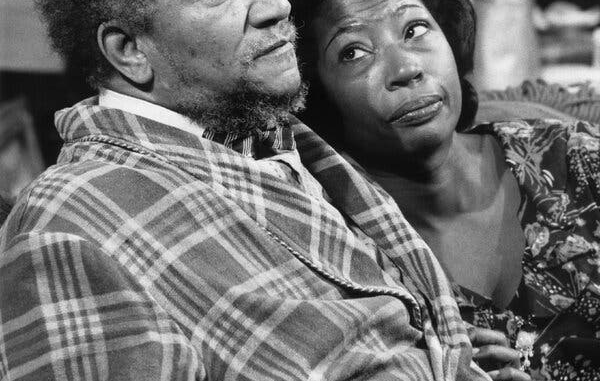
To viewers, Sanford and Son was a riot—a father and son bickering in a junkyard, trading insults faster than bullets. But off-camera, the real drama between stars Redd Foxx and Demond Wilson nearly tore the show apart before it reached its peak.
Redd Foxx was already a comedy legend by the time he took on the role of Fred Sanford, the grumpy, sharp-tongued junk dealer who always seemed on the verge of a heart attack—“Elizabeth! I’m coming to join you!” became a catchphrase for the ages. But while the world laughed, few knew how tense things were behind the scenes.
Foxx clashed constantly with NBC executives over money. He believed he was being underpaid compared to white TV stars, despite carrying one of the network’s biggest hits. During Season 3, he even walked off set—mid-season. Just disappeared. Production halted. Rumors swirled. Was the show over?
Demond Wilson, who played Lamont, found himself stuck in the middle. He tried to keep the production afloat but felt disrespected, too. When Foxx returned, things didn’t magically repair. The energy shifted. According to insiders, their once-close bond had fractured.
They weren’t just co-stars; they were men from two different worlds. Foxx was a veteran of raunchy nightclub acts, a man who’d seen the dark side of showbiz and come out laughing. Wilson, by contrast, was younger, more serious, and spiritually grounded. He reportedly didn’t appreciate Foxx’s constant joking and late arrivals to set. Eventually, they stopped speaking between scenes.

Still, the magic somehow continued on screen. Their comedic chemistry never wavered—proof of their professionalism. The fights, the misunderstandings, the tensions: all were buried beneath the applause and the jokes.
But the damage was done. When Foxx left the show for good to do The Redd Foxx Comedy Hour, NBC tried to keep Sanford and Son alive without him. It failed. The spark was gone.
Fans today remember the laughter, the insults, and the iconic junkyard couch. But behind the scenes was a different story: two men, fighting for dignity and direction in a world that didn’t always give it freely to Black performers. And that, in the end, was the real legacy of Sanford and Son—not just the humor, but the humanity it fought to preserve.